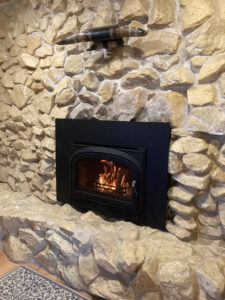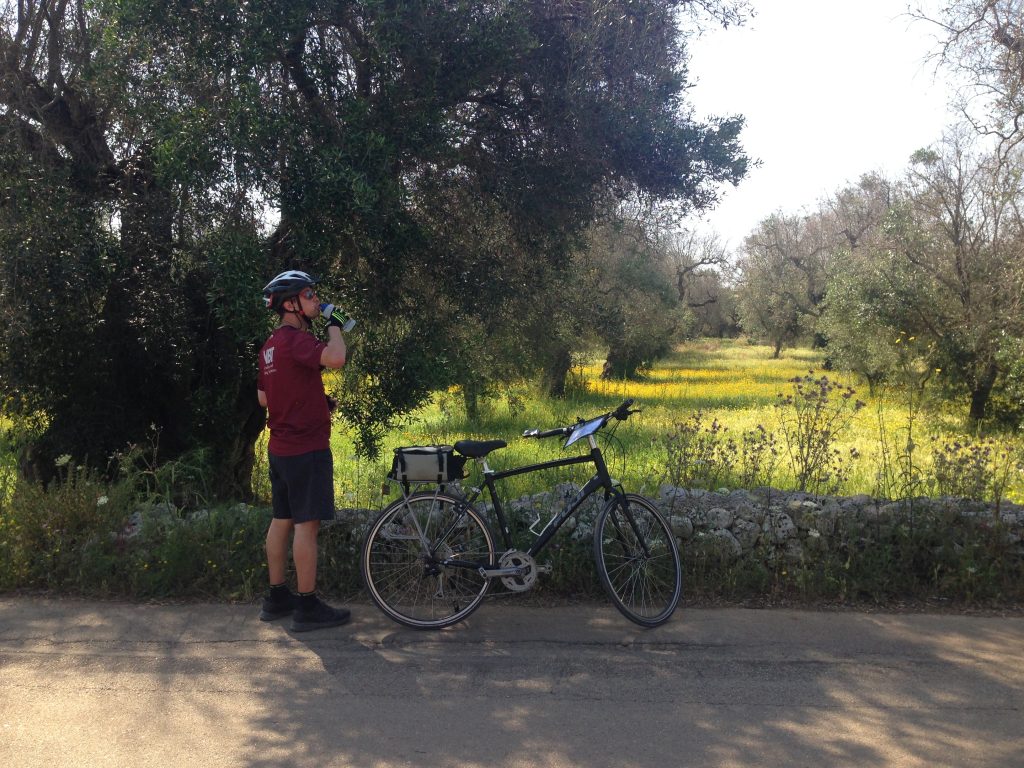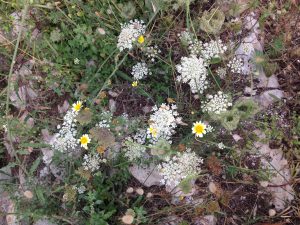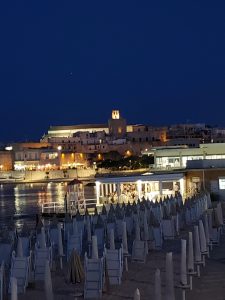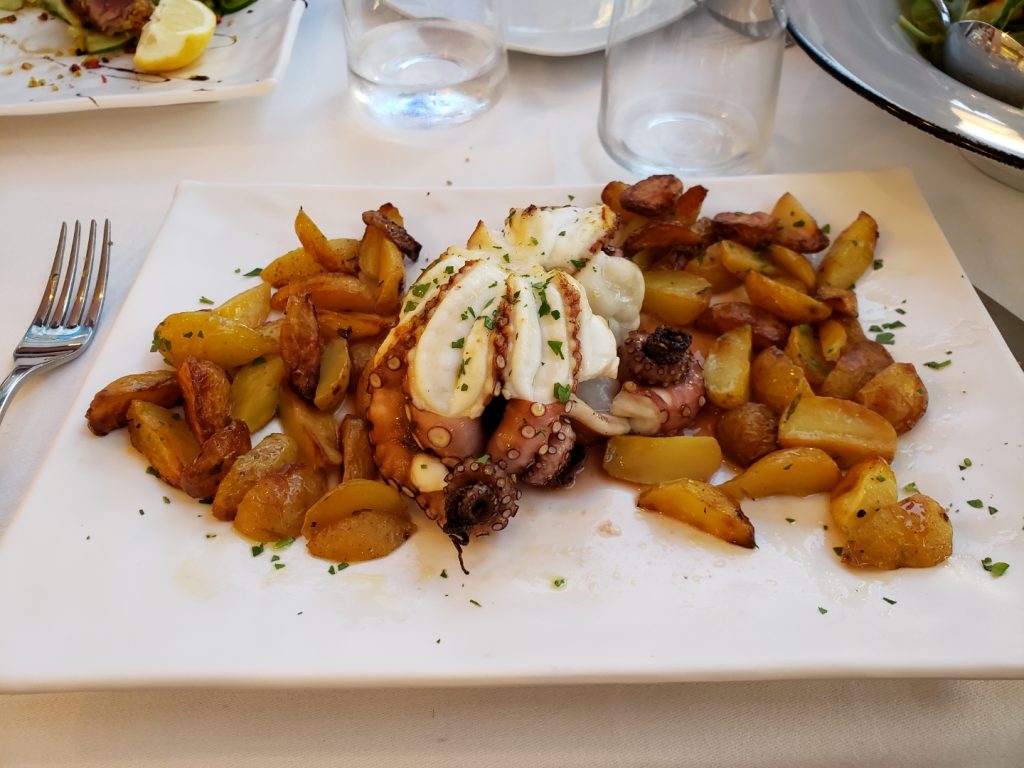decision-making
Prepared. Resilient.
I had forgotten how wonderful a warm fire feels on a cold day. We had a wood stove at the farm. After we moved to town, installing a wood-burning fireplace insert went on the to-do list, but it would always slip down a few notches as other things crept up the list.
I grew up in Wisconsin. I have never been so cold in my life. We saw the forecast, so we prepared. We filled three five-gallon jugs and the bathtubs with water. We had two weeks’ worth of food (although my plans to make lasagna mid-week were foiled). I also made a point of finishing the laundry on Sunday night.
Back in 2011 the power outage didn’t last as long, but we didn’t suffer because the wood stove kept us warm and heated coffee (always essential) and food. Here in town we have a gas furnace, but every time the electricity rolled off during Uri, so did the heat. Getting a wood stove went to the top of the to-do list.
As the good people at Heffley’s installed the fireplace insert this fall, I learned how lucky we were that we didn’t chance using the old gas logs. (Before we moved in, the home inspector declined to check the fireplace. He told me to get a plumber instead. That job never even made the to-do list.) We discovered that the rock façade had separated from the chimney. We probably would have set the house on fire that week.
The whole experience made me re-think what it means to be prepared and resilient. We took care of some of that this year. But buying stuff (we also got a Goal Zero battery with solar panels and a portable cooktop) doesn’t necessarily make you prepared and resilient.
Perhaps the last five years’ of resolutions were leading to this moment — saying no to buying stuff, saying yes to new experiences, better connecting to others, wearing an apron (looking for simple solutions), and taking it (whatever it might be) to all four corners.
Sometimes I think about those worst-case scenario books the kids loved when they were young. They were often funny and terribly fantastical (dodging an alligator attack or elephant stampede, landing a jet, etc.) but after Hurricane Harvey, I wondered how to pitch the tent on the roof. In the meantime, we will set up our go-bags.
Climate change is here. Time to be prepared and resilient.
Reagan was wrong. There is no trust when you must verify.
The first time I took Sam to school and left him for a full day was a big leap of faith. I wasn’t alone, of course. Parents want to protect their kids. And parenting a child with autism or other disability puts that protective feeling into overdrive. Eventually I saw that we weren’t alone. His many teachers and therapists were part of his village. Later that year, I walked into a special education team meeting and recognized that, for the first time in Sam’s young life, I was not “on call” for every minute of every day. It was such a nice feeling, one that left room for more thinking and reflecting about our lives, and for resting, too.
That’s not to say that his school years were perfect. We knew not everyone in his life would be as mindful. But we also knew that the perfect is the enemy of the good. When conditions warranted, someone at school picked up the phone and told us about an emerging problem. We addressed many small things before they got big. And we learned to celebrate the average and the good enough, which was its own kind of achievement for Mark and me.
So (and you knew there was a so, didn’t you, dear internet people?), I struggle deeply with the burgeoning installment of security cameras at school. We aren’t just pointing cameras at the school’s exterior doors. Or in the hallways. Or from the school resource officer’s body armor. We are pointing them inside the classrooms, too.
In Texas, parents can ask for a camera in their child’s special education classroom. The school must get consent from parents of the other kids in the class, but such camera use is on the rise. Advocates for kids with disabilities continue to press the legislature for broadening a family’s rights to footage. One day, some parent will send their child with a disability to school with a body camera if they believe it’s necessary.
I recognize that school can be a rough place for children who don’t fit in for one arbitrary reason or another. Sam was getting hassled in the boys’ bathroom one year, and solving the problem proved tricky for the aides, both women. But we figured it out.
I recognize also that some schools are hard pressed to fill their teaching ranks. There are employees without enough skills to work with and manage kids, the place where most tragedies begin.
This is not to say that people in our community might have different values from my family’s or yours. As a culture, we wobble too much in figuring out how to work with those differences as strengths and educate our children. But I have to say, where parents are asking for cameras, we aren’t reading those huge warning flags.
When Sam graduated high school, I wanted everyone from elementary school on up to have a “Team Sam” button as a little token of our esteem and affection. I ordered 250 buttons and did not come close to gifting all those people who touched his life and helped him make progress. Dozens of teachers, of course, but also speech therapists who worked with him on communication skills. Occupational therapists and adaptive physical education teachers who helped him with his motor planning and ability to calm himself. School counselors who helped him build friendships. Aides who helped him stay on task in class and occasionally take a moment to decompress when he couldn’t. And the principals and other staff who stood by and made sure all those people had the support they needed.
I had to trust these people. All of them. A lot.
There was no “trust but verify.” Where there are cameras, there is no trust.
Conservative guardianship
Britney Spears’s battle to be free of the conservatorship that has governed her affairs touches familiar themes for us old-timers in the disability world. She’s asking for the grown-up version of the least-restrictive environment, the federal right of children with disabilities to receive a free, public education alongside their peers in regular education classes, with support, if necessary.
For now, the least-restrictive environment is the best way we know to ensure every child has access to all they need to learn and grow into their best selves.
Over the years, I’ve seen a few families struggle to understand what guardianship really means. Adults need a least-restrictive environment, too. When Sam approached high school graduation, we were told that, as his parents, that we’d better think about setting up guardianship before he turned 18. It has been a few years now, and perhaps understanding has improved among the teams that do this transition planning, but at the time, Mark and I really thought that recommendation came out of left field. We’d fought for Sam his whole life for him to be included at school and in the community, to be in that least restrictive environment. Something about guardianship felt very restrictive to us.
Then an older, wiser friend boiled it down for us. “You’ll have to tell a judge, in front of Sam, that he’s incompetent.” I can still see Mark’s face when he realized what that meant. “We could never do that to Sam,” he’d said. To which I’d replied, “oh, hell no, we couldn’t.”
I often bring the salt, just FYI.
For our family, that ended the guardianship discussion right there. I did poke around a little, however, to figure out ways we could be his bumper guard. Once you start looking around, there are all kinds of ways to be there for someone, even in a somewhat official capacity, from bank signatories to putting both names on a vehicle title to advance directives and more–all without ever stepping foot in a probate court.
Last week, I learned even more about the power of supported decision making, an alternative to guardianship that gets you in the door when your loved one really needs you. These documents are legally recognized, even if your loved one is ensnared in the criminal justice system. One-page profiles can also help a lot for those times you can’t get in the door–when your loved one is in the hospital with covid, for example.
When your loved one truly needs a guardian, it pays to be thoughtful and as minimally restrictive as possible. That can be tough in Texas, just another FYI.
This year, advocates helped defeat a troubling bill filed in the Texas House of Representatives during the last regular session. If it had passed, the bill made it too easy for parents to get and retain guardianship of their teen. The legislation was inspired by one family’s tragedy, but it was rife with unintended consequences that would have stripped many young adults of their autonomy—especially if special education transition teams in Texas school districts are still advising parents to pursue guardianship without thinking it through.
Community of practice
I finally moved my personal things out of my old office space, thanks to the help of a co-worker who also had to listen to me prattle on about things like how many piano makers there were before and after the Great Depression and why that might mean something to journalism now.
I have a century-old, upright grand piano. My parents got it for me when I was first learning to play. It has a big sound, especially after I had it rebuilt about ten years ago. The man who rebuilt it told me that before the Great Depression there were more than 400 piano makers in the United States. After the Great Depression, there were just two.
That seemed a stunning loss to me. Many people love music and enjoy playing, even if just for themselves. Pianos are among a handful of instruments that play both melody and harmony. However, our attention is never guaranteed, and our money usually follows wherever our attention goes.
That same drifting attention is happening to the news business now. Businesses needed your attention, so they got it by putting their advertisements next to news. Newspapers were among the original public-private partnerships. The better quality the news — a real public service at that point — the more valuable that space got. That is, until our attention started to drift.
One of the Denton newspaper’s most popular reports was the police blotter, at least before the pandemic began. It had long been a guilty pleasure for readers. Of course, now they can find even more guilty reading pleasures on Facebook, a company only too happy to hoover up the advertising revenue as people’s attention drifts over there. Probably in another year or two, there will be only a handful of news outlets left because the business model that extracted value out of our attention has changed so much.
Some people have finally figured that out, that the business model now is for people who recognize they need solid journalism to make sound business decisions and to make good public policy decisions.
Without that, we will soon have warlords squabbling for years while ticking time bombs sit in our harbors.
I’m ready to stop thinking about the business model and start thinking about the community of practice — journalists are a group of people concerned about the quality of information, how it’s gathered and vetted, and how to do it better, and the best way to do that is by debating all those values regularly among your peers — and then publishing or broadcasting.
This community of practice in journalism is also the same thing that people like to criticize as “the priesthood” or the “legacy elite” or “media bubble” or whatever other pejorative they want to hurl at the wall that might stick for the moment. But humans create communities of practice because they care about what they do and want to do it better, and scholars are beginning to recognize how much this phenomenon has helped all kinds of businesses do better and make progress in our modern world.
My first introduction to communities of practice came in the autism world, with parents sharing wisdom and such. Eventually, parents started seeing that the best therapists with the most powerful ideas kind of hung out together and fed off each other’s practice and research. No one was talking to you about a “community of practice,” but if you wanted the best for your child, you always wanted to be close to that, since chances were higher that your kid would benefit from all that supercharged brainpower and skill.
I encouraged Michael and Paige to find the equivalent as they ventured out into the working world, although I didn’t have the vocabulary for it at the time. At the University of Iowa, they organized the dorm into micro-communities that way and Paige fell right in. She’s still friends with many of her original writing community. Michael got a power introduction to the concept as a behavior tech in the autism world. He’s like a heat-seeking missile for that value where he works.
Journalists sometimes compete with each other, but we benefit from each other’s successes and critical takes on each other’s work. The successful business model(s) will depend on the rigor within our community of practice. As business models disappear and fail, that doesn’t mean the community of practice must also, but it makes it a lot harder. Until the emerging business models stabilize, our environment is ripe for propaganda disguised as news. But if our community of practice disappears, no business model will save it.
Just like the piano makers.
Leap and the net will appear
Early in my career, a fellow writer and sometimes mentor said that he didn’t always know what he thought until he started writing.
That was a freeing thing to hear. The fear of the blank screen vanished. I didn’t have to know exactly what I was writing before I started. I could discover what I was thinking along the way. I could re-write again and again to make it clearer, fixing any flabby thinking and respecting the reader, because what is writing if no one reads it?
We all read to better understand what others are thinking and to adjust our thinking accordingly, writers most especially included.
Which brings me to this morning’s topic, writing to better understand a hella lotta thinking that happened this week, because this week, I quit my job.
Until Tuesday night, I had a good job that has become increasingly rare — a full-time journalist for a family-owned newspaper. The job didn’t pay particularly well, but I enjoyed the work and I was fairly good at it, so it had its own reinforcement loop that didn’t have a lot to do with money (does it ever for a writer?). I felt I was serving the community I love. I’m sure some people thought it was unnecessarily tough love at times, but I hope we can just agree to disagree there. Sorry, Charlies, sometimes the truth is really tough.
So as I climbed the hill that my job was about to die on, I was surprised at my courage to keep going. Then I saw that my feet held because they kept finding the truth. I may not have uncovered everything there was to know, but what I did know to be the truth was this: who and what was important to me might die (not exaggerating) if I didn’t keep going to the logical finish.
It’s not the first time in my life that I leapt knowing in my heart that the net would appear.
To sum up the thought for the day, I grabbed a few of my favorite lines from my upcoming book with co-author Shahla Ala’i (which luxuriously now has my full attention, a good thing because we have to deliver to the publisher in about six weeks), Love and Science in the Treatment of Autism:
Love may be the only thing that is not fragile in our material world. Love makes a great bet. Love gives our lives meaning. With love, we forge through troubles and make progress. Love makes a family. We know we will fail sometimes and that love grows in learning from those failures. Love helps us through periods of being unlovable ourselves, or of not loving others.
We keep choosing love, above all.
Cycling close to the sun
Sam said he liked the country roads best on our family bicycling trip to southern Italy. There are 60 million olive trees in Italy and I do believe we pedaled past a hefty percentage of them.
In this photo, you can see he stopped next to an olive tree that was a thousand years old. Some of them look great. Others are succumbing to a bacteria that came over with an insect stowed away on South American-made pallets. Many of the olive groves are small, family-owned plots that produce enough to supply the family with a little more to share. (You can buy olive oil in Italy the way we buy craft beer here in the U.S.)
On the backroads, you can trade that ten-European-cities-in-seven-days experience for a different kind of intensity. What’s not to like when you share miles of road lined by stone walls with just the occasional tractor or Italian nonno driving his 1967 Renault Quattro to the village? The roads weren’t perfect, but Sam didn’t mind dodging the potholes. Once, along a highway, I watched him drift, ever so slightly, into the main lane so that he could cycle over the rumble strips.
On the backroads, you can catch the fragrance as you pedal by chamomile, star jasmine, ginesta (broom) or the pine trees.
You can see a farmer having a sandwich in the shade of an olive tree. Another farmer stops picking to pass a handful of fresh figs over the wall to a fellow cyclist. Old men sit on benches in the center of the village and wish you “buongiorno!” The village center doesn’t look like it’s changed much at all in several hundred years.
Sam was ready for the routine, having gone on a similar tour last fall in Germany, Austria and Switzerland. We pedaled a good pace and still found time to relax in the swimming pool after covering 20-30 miles each day. Nobody lost anything along the way. The only real drama came the last day. A driver honked and then turned right in front of Paige, thinking that Paige would stop (uh, NOT) and then nearly hitting her on her bike. One of the tour leaders detoured to yell at the driver. The moment was so quintessentially Italian that I couldn’t help but live vicariously through the movie she was making for me right then and there.
Sam downloaded two dictionaries before we left the U.S. and explored the language often. He always tried to order in Italian. Periodically, he also thought of things that would increase our comfort and success in living out of a suitcase for days at a time. He inspired me to start a new checklist for our next trip — when or wherever that might be. At one point, he told me he thought he could take the next tour by himself.
He probably could, but that was never a goal of these trips. Traveling brings new perspectives. We bring some of the romance home by letting the experience change the shape of our daily lives. Sam grows through travel just like the rest of us, only a little bit more. He has always cycled a little closer to the sun.
Cake for breakfast
Early on during our bicycle trip in southern Italy, Sam announced a goal: he was going to try all the seafood he could. That was daring.
The first day, our trip leaders asked whether anyone in the group had food allergies or preferences that they needed to know. Sam’s preferences are idiosyncratic, but they aren’t hard to work around. It was easy enough to tell them that for welcome cocktails, “no alcohol, no bubbles” works for Sam. The bartenders seemed to enjoy the challenge putting together fun juice combinations for Sam. He also doesn’t like fresh tomatoes, although tomatoes cooked into sauces are ok. Even so, when something came out of the kitchen with a tomato or two – the Puglia region is famous for its cherry tomatoes – he was a sport about it.
But the seafood goal was something else altogether. The first time I can recall him being deliberately additive, not restrictive, about food. He studied entire menus in his quest. He picked classic Italian dishes: a plate of mussels as a starter, pasta with clam sauce for a first course, a swordfish steak for second. He picked unexpected ones, too, like seafood pizza. He was triumphant when he found octopus and potatoes for dinner at a seaside restaurant in Savalletri.
That’s his photo, by the way.
It’s hard not to be sentimental about how far he’s come. Sam was so food challenged growing up. As a preschooler, he would eat only breakfast cereal morning, noon and night. He hit his big growth spurt at age 15 and even though he was hungry, he limited his food choices and still refused meat. We came close to taking a second mortgage out on the house in order to pay for an intensive intervention program at Ohio State, but he turned a corner just in time. Given enough ketchup and Parmesan cheese, he started broadening his choices. Instead of eating the edge of the bun all around the hamburger, he ate the whole burger.
(Puglia restaurants are surely restocking their Parmesan supply now that we’re back home. But to be fair, he didn’t cover everything in Parmesan. We let him know which Italian foods didn’t lend themselves to that and he was happy to try without.)
Paige and I had our own dining wish lists, although we were never able to make good on eating tiramisu in Italy. The dessert at the end of the meal was usually the chef’s choice. Sweet semifreddi, gorgeous gelatins, mille-feuille — it was hard to get upset about that.
We didn’t expect that the choice of dessert sweets would be plentiful at breakfast, but there you have it. Italian masserias place many different cakes and crostada on their breakfast buffets.
We were cycling 20-30 miles a day. Heck, yeah, we had cake for breakfast.
A year to be more open and connected
Two years ago, after writing a news story about a few of our clever readers and what they learned achieving their New Year’s resolutions, I did mine differently. A year into my own experiment, I had learned so much that I shared it in a column.
That first goal to not buy anything (with reasonable exceptions for food and fixing things) reinforced a simpler, more sustainable life. My next resolution, “Yes, please,” was meant to be this year’s yang to last year’s yin of “no, thank you.”
The idea wasn’t that “yes, please” was permission to give into impulses or rationalized needs, but to push through whatever had been stopping me from trying something new. How else to see the world unless you push through to the other side? I made a list of about a dozen challenges that have been nagging for years; for example, learning to better maintain my bike, sew upholstery, broaden my computer skills, speak conversationally in another language, and make cheese. But if something new crossed my doorstep, like when my friend and brilliant textile artist Carla offered a day of indigo dyeing, I said “yes.” I said yes whenever I could.
Not only is life simpler and more sustainable, but it’s also richer and more fun.
That brought the social media expression of my life into sharp relief. For the coming year, I will co-opt Facebook’s stated mission, to be more open and connected, by quitting Facebook.
The main reason to shut down my account is one that has nagged me for a long time. Facebook’s real mission is nothing like its stated mission. For example, I’ve noticed there are people you cannot reach any other way than through Facebook. I’m not saying that’s a bad thing. In Texas, we might share a lemonade on the porch and we’re cordial, but we just don’t invite everyone inside. So I would argue that when you can’t reach someone except through Facebook, then you aren’t really connected at all. Facebook is managing your relationships for you through the veneer of being “open” and “connected.”
I set up the Family Room blog as a place to explore ideas related to living with autism. It’s interesting that most readers come here via a Facebook link and will return to Facebook to comment on the topic, rather than connecting below and creating our own community–which, by the way, is not open to exploitation by a third party because I filter and delete all that garbage.
That’s Facebook’s real mission. And, they “move fast and break things.” After I watched Frontline’s two-part special, The Facebook Dilemma, I couldn’t be a part of it anymore. American newspapers are struggling because Facebook (and similar businesses) got the rules changed: they can publish with impunity while newspapers must continue to publish responsibly. It’s expensive to be a responsible company. But it’s worth it because, for one, the truth is an absolute defense. And people don’t die in Myanmar because you got so big moving fast and breaking things that you can’t clean up after yourself anymore.
It took Sam a while to accept my decision. He was worried that my exit would affect his experience. I respect that very much. People with disabilities need help living lives that are more open and connected. He finds community activities through Facebook. Because he can scroll at his own pace, he can absorb and react to more news that people share. He’s not impervious to the third-party nonsense, but he’s not going to show up at a fake rally meant to destabilize the community.
I’ll still be on Twitter because I use the platform for my job and I can’t escape it. And I know my departure from Facebook may affect my coworkers, so I will work to ameliorate that. I hope that readers who want to continue to be part of Family Room will use the green button below to bookmark the blog and come back once a month or so. This blog isn’t going away even though the Facebook teasers will.
My first objective will be to use my words to be more open and connected. Family Room will be one place to make that happen, along with all of the other ways we’ve always had to connect with each other (insert mail-telephone-plus-ruby-slippers icons here!)
My second objective will be that when I have something to share, I will share it with the person I believe would appreciate it most.
My third objective will be actively listening to others in the coming days and weeks. Because the best way to connect is to respond.
Sam taught me that.
Gentlemen, start your engines
Sam has had a lot of car trouble lately. He has been driving a 2001 Toyota Corolla that he bought used 10 years ago.
This little car’s early life was in Corpus Christi, which probably means some hard miles in salt air. (We made sure it wasn’t ever flooded before we bought it.) The plastic parts have gotten so brittle, it’s just a matter of time.
Our first big tap on the shoulder was on the way to State Special Olympics a month ago. We blew a tire. Now, that’s no big deal, as long as you can keep your wits about you as you put that little donut of a wheel on your car along the highway in a strange city long after dark. But after we got two new front tires at the tire shop, the car wouldn’t start. For whatever reason, the bushing to the shifter cable broke while the car was up on the rack. We may have hobbled to the tire shop, but we had to be towed to the dealer for that repair.
Fun times.
On Friday, we got another big tap on the shoulder when Sam headed out to work. Turn the key and nothing, nada, zilch. He’d already changed the battery in January. From the problem in Bryan, I knew it wasn’t the shifter cable. And from my own truck’s problem last month, I knew it wasn’t the starter.
Since we would have had to pay for a tow, it was worth the gamble on replacing the ignition switch. Sam inherited his father’s talent for fixing things and, for whatever reason, I’m a fair troubleshooter. It took a few hours, but we knew we’d identified the problem when we compared the old and new switches. The old one had the telltale signs of an electrical short. And one of its three plastic brackets had broken off, likely setting off the slow chain reaction that jostled its way into oblivion.
I have been coaching Sam for months about planning to buy a new, or new-to-him, vehicle. Some of the plastic parts he’s had to replace on the car don’t have anything to do with its overall reliability, but many others do.
People without reliable transportation risk losing their jobs. Our local transit authority, DCTA, stunningly, has zero bus service to Denton’s industrial park where Sam and thousands of other Denton residents work.
I do not know why this is, but I’ll put that on my to-do list at work. (I’m a reporter for the Denton Record-Chronicle.)
Sam is reluctant to retire his car yet, and I can respect that. It still runs well overall. He hasn’t had a repair that’s cost as much as a new car payment.
After Sam finished replacing the ignition switch, the car cranked its Toyota self. He got a big grin on his face. For about $75 he bought himself more time.
For now.
Butterflies
Sam was spared the agony a lot of us get in the home stretch for a new job: the long wait between a successful interview and the offer. On Friday, one rolled right after the other for him. He had the best smile when he announced over dinner that WinCo hired him to work in the warehouse.
Sam sacked groceries at Albertsons for ten years. He didn’t want to become a checker. Sometimes customers are impatient. “I wouldn’t be fast enough for them,” he said. He didn’t want to stock shelves, either. I shopped late enough on the occasional Friday night to see those guys at work. Sam couldn’t be that raucous.
Nothing came his way after he graduated with an associate’s degree and certificate in computer science and technology five years ago. It was frustrating. Once I asked a manager at Albertsons if there was a way for a loyal employee with an education to move up. She shook her head no. There aren’t corporate offices here, she said.
Then Sam got a call. WinCo was opening a warehouse in Denton. They wanted to try to hire people like Sam. He would have to quit his job at Albertsons; participate in a special, six-week training class; and interview for the job at the end. There was no guarantee he’d have the job when he finished the training. In addition, he would only be paid when he was handling actual store product in the warehouse. Otherwise the rest of the training time would be unpaid. This was a Goodwill Industries program. The training included a lot of class time on “soft skills,” like getting along with co-workers, deciding when (and when not) to disclose your disability, interviewing techniques, and the like.
Sam had been in the work force for a decade. He’d been there and done that. It didn’t seem fair for him to quit a job and go without pay for four weeks. But I know I can be skeptical. It’s an occupational hazard. I kept my mouth shut. He had a chance at a job that would quadruple his take-home pay.
(Some nights he’d come home, relay what they learned that day and I’d muse over how it might be nice for the newsroom to get a “soft skills” refresher from time to time. We often seem barely house-trained–myself included.)
This week was all butterflies. I missed the open house Sunday, but Michael and Paige went with him to see for themselves what he was shooting for. We were prepared to help Sam update his resume. No need, he said, the program folks already got his resume all wrapped up. Did he want to do some mock interviewing? Nope, he said, he’d already practiced and had notecards with sample questions and answers. He’d just look them over each night, thanks.
He was visibly nervous Thursday night. A lot had lead up to that day. He made sure he had all his interview clothes ready to go and packed up work clothes, too. After the interview, he expected to be back out on the floor, in his bay, and he needed to wear a sturdy shirt, jeans and his work boots. I kept checking my phone all day for news, but that’s not his style. He was epically impulsive as a child, but now, he almost delights in waiting to deliver good news.
I don’t know who was smiling bigger on Friday night when he told me. If it were Michael or Paige, there would be lots of hugs and backslapping and arm-squeezing. But that, too, isn’t Sam’s style. I told him I’d like to shake his hand to tell him congratulations and how proud I was of him.
He kept eye contact as he extended his hand and gripped mine. Not too hard, not too soft. Up and down, not too fast and not too slow.
I kid you not, dear Internet people.
It was the first time in my life I’ve ever experienced the perfect handshake.
